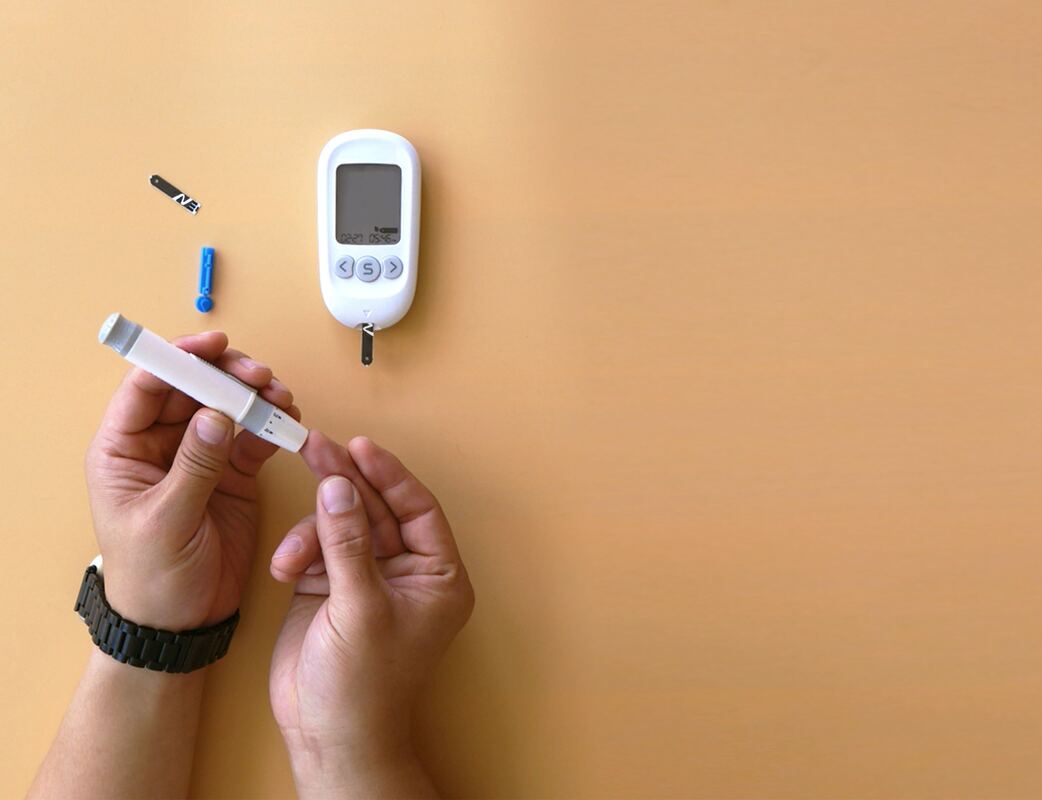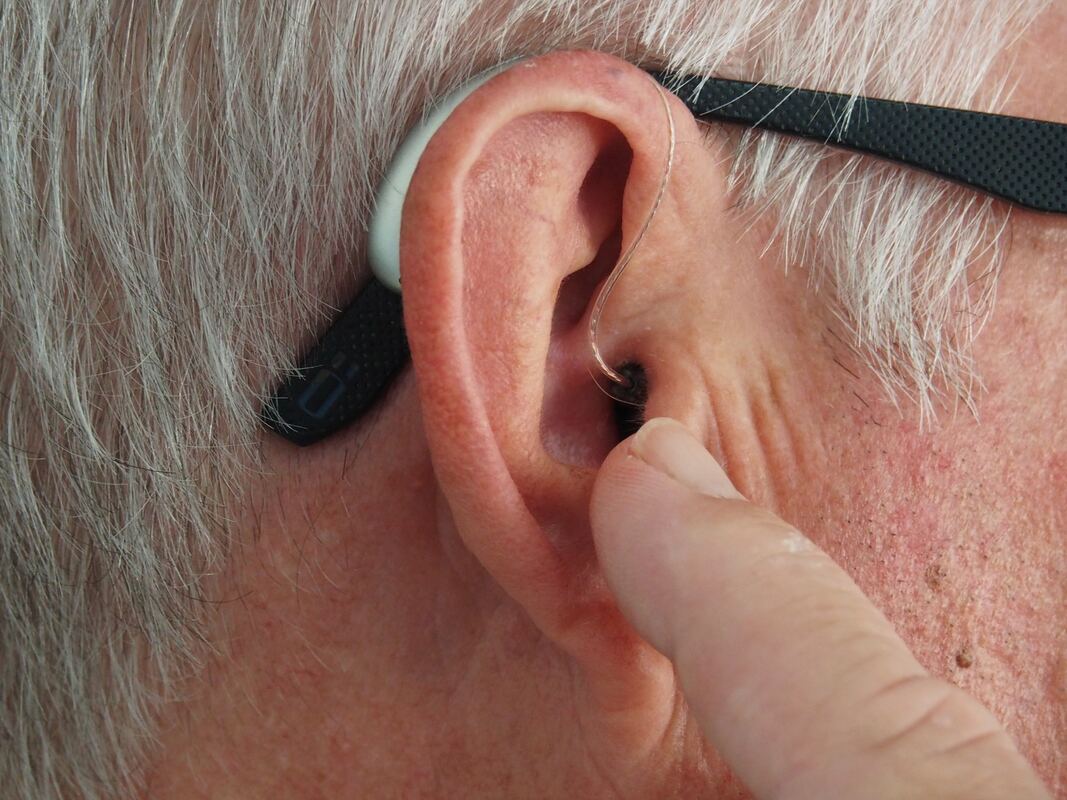|
When your blood sugar levels are not regulated, you may experience hearing loss.
Diabetes and hearing loss are common health issues among American adults. There have been reports from nearly 15% of adults in the U.S. (37.5 million) who said they experienced problems with their hearing. Symptoms of hearing loss generally worsen as a person ages. Roughly 25% of people between 65 and 74 years old have this condition. About 50% of people, at least 75 years old, sustain disabling hearing loss. There is an overlap among patients with both diabetes and hearing loss. According to the American Diabetes Association (ADA), patients with diabetes are twice as likely to have hearing loss than patients who do not have diabetes. In the U.S., patients with prediabetes blood glucose levels are more likely to have a 30% higher rate of hearing loss than patients with average blood glucose levels. Diabetes and Hearing Loss can lead to Sensory Damage. Your nervous system can become damaged from unmanaged diabetes. That can impact your whole body. A common symptom is the inability to hear high and low frequencies. Other risk factors may include heart disease, low HDL cholesterol, peripheral neuropathy, and overall poor health. If you have diabetes and chronic diseases, you should get a hearing test. Some medications related to diabetes affect a patient’s overall health, which can negatively impact their hearing. There are some things you can do to curb this problem.
How can Diabetes lead to Falls? Falls are another thing to worry about if you have diabetes and hearing loss. The vestibular system, located in the inner ear, is the sensory system that gives the fundamental sense of balance and spatial orientation on a person’s movement with balance -. The vestibular system can become damaged due to diabetes. The top complaint from patients over 70 years old, with diabetes and hearing loss, is vertigo. Hearing problems that remain untreated can harm relationships, whether they are personal or professional. These are some reasons why taking care of both diabetes and your hearing should be a priority. Better hearing can lead to better overall health by giving you more energy to live your life. Contact Northumberland Hearing Center for a hearing exam and consultation with our hearing care professionals.
0 Comments
Hearing loss that stays untreated could leave you with severe consequences to your health and quality of life. Every time you hear something, your brain gets exercise. Not receiving help for hearing loss can worsen a patient’s cognitive performance because it shrinks and atrophies the brain. More cases of falls due to imbalance, hospitalizations for these outcomes, and a high risk of depression and dementia caused by social isolation - this may occur due to the challenges that come with communicating while having hearing problems.
Your ability to appreciate TV, movies, music, and nature can be futile due to difficulties with hearing. You’ll begin to feel excluded. The inability to hear can also throw you into an unsafe environment. If you can’t hear a car or emergency vehicle driving in your direction, that can put you and the driver at risk of a collision. Completing tasks at work might be more challenging, and missteps can reoccur. As a result, your income can be affected. It’s common for people with hearing loss to be in denial over their hearing problems. Instead of seeking help immediately, they’ll ask others to repeat themselves or raise the volume level to whatever they are listening to. Other practical reasons why people may not seek help immediately, or at all, is because they cannot afford it or don’t have health insurance. A network of support from family, friends, and healthcare providers is necessary for starting their lives toward better hearing. Things You Can Do for a Loved One with Hearing Loss Simply be available. This person might need you to listen to their frustrations about hearing and communicating, or maybe there was an incident they need to vent about. You could “be their ears” in social situations if they mishear something or completely miss out on what was said. Be patient and supportive, even if you have no clue what they are experiencing with their struggles. Point Out that their Hearing Loss also Affects You. Give a gentle reminder about how you and others who interact with them are also affected by their hearing loss. Whether it’s the need to repeat themselves or safety issues - the inability to hear warning sirens, oncoming vehicles, or news/weather alerts. How You Can Help a Loved One with their Hearing
Don’t Delay Receiving Help Like any health issue, the longer you wait to seek a diagnosis and treatment, the more challenging it will be to treat. Untreated hearing loss becomes progressive, which can mean expensive medical care or no treatment options. Contact Northumberland Hearing Center for a hearing evaluation and consultation. If you recently saw a fireworks display, it was a good reminder of how loud they can get. Noises from fireworks can reach up to 150 to 175 dB. Annually, people who go to a live fireworks display without hearing protection experience some loss in their hearing abilities.
Whether you experience hearing loss or not, please protect your hearing the next time you plan to see fireworks. If you’ve recently noticed problems with your hearing after seeing fireworks, see an audiologist immediately. It only takes one exposure to loud noise to permanently damage your hearing. Prolonged exposure to any noise over 70 decibels (dB) can begin to deteriorate your hearing health. In the future, how should you prepare yourself before seeing fireworks? 1. Are you standing far away from the source of the noises? The farther away you are from the bursts of noises, the less likely you are to experience problems with hearing. 2. How far should you distance yourself from the source of the fireworks? The World Health Association has stated that adults should not be exposed to noises from fireworks that reach over 140 decibels (dB). Fireworks noises that reach over 120 dB can be dangerous for children. Adults can safely be 15 to 20 meters away from fireworks that reach 170 dB. Kids should stand 50 to 60 meters away. Babies should never be exposed to fireworks because the noise creates too much sound pressure. 3. Wear protection for your Ears. No matter what type of fireworks you plan to see - store-bought or professional fireworks displays - protect your ears. There are two types of hearing protection to choose from:
If you are experiencing changes to your hearing from exposure to loud noises or for any other reason, please contact Northumberland Hearing Center. If your hearing isn’t as good as it used to be, a loved one’s voice, music, or nature might not sound like it used to. You can enjoy these sounds again with a great pair of hearing aids.
If you’ve put off receiving hearing aids for too long, wearing hearing aids and hearing sounds that you haven’t heard in years can be overstimulating to the ears and brain. Don’t let this discourage you from wearing them every day. Adapting to hearing aids takes time and patience. What Should You Notice within the First Few Weeks? Based on your range of hearing loss, noises around you can sound stifled, or you can’t identify every noise and where it’s coming from. Hearing aids can be programmed so you can focus on sounds in front of you, sounds coming from behind you, or sounds coming from all directions. As you familiarize yourself with the hearing aids, everyday noises may sound louder than usual. The sound of your own voice and other ordinary noises could sound unusual. When it comes to hearing aids, there are certain things that you’ll need to familiarize yourself with.
Handle Hearing Aids with Care For a smooth adjustment to your hearing aids, get acquainted with the devices. Get the basics from your hearing aid provider. Learn to properly insert and remove your hearing aids, and practice daily. There are special maintenance and cleaning practices for your hearing devices, so ensure that your provider goes over those with you. Test the hearing aid’s settings and focus on the differences in various environments. Hearing Aid Usage at Home Begin to wear your hearing aids in a quiet indoor area at home. It makes it easier to distinguish and recognize sounds without uncontrollable background noises. After doing this, try going outside for a walk. Wearing hearing aids outdoors is a different experience. You’ll have the opportunity to concentrate on many different and quiet sounds, minus the distracting background noises. Having a Conversation Your initial conversation while donning hearing aids should take place in a casual setting. At the most, you should only be speaking to two people in a distraction-free space. You can explain how your hearing loss has shifted your communication style and what they can do to ease conversations with them. The Best 3 Ways to Have a Conversation if There’s Background Noise
How to Deal with Loud Surroundings After getting acquainted with your hearing aids, wear them in an area with a lot of background noise. You can check your ability to isolate background noises and handle conversations in these environments. The New Experience of Better Hearing When you can hear better with your new hearing aids, as mentioned before, the initial experience will most likely be unpleasant. Hearing the sound of your own voice can be alarming due to the occlusion effect. It’s when a person hears their own voice as sounding “booming” or “hollow” with echo-like noises. According to some hearing aid users, it’s like talking while being in a large barrel. This occlusion effect occurs when bone-conducted sound vibrations reverberate throughout the ear canal. It can intensify low frequencies. Some have also described it as “your own voice resonating in your head.” The solution is to ask your hearing instrument specialist to change the amplification and ventilation ratios. If you are experiencing hearing loss and need an evaluation and hearing aids, contact Northumberland Hearing Center for a consultation. Good news for hearing aid users who are filing taxes! Hearing aids are tax-deductible when listed as a medical expense. According to the IRS, this tax deduction applies to any hearing aid user who spends over 7.5% of their income on medical and dental bills and if they itemize their medical expenses.
If your medical expenses typically go undocumented, but you paid a hefty bill for a hospital stay or surgery last year, discuss this with a professional tax advisor. Determine whether itemizing your medical expenses would be beneficial for you this year. Additionally, if you anticipate significant medical expenses this year, use this time to determine if you or your spouse will need hearing aids. You can deduct them from next year’s tax return. Expenses Deducted for Hearing Healthcare If you itemize medical and dental expenses with a Schedule A Form 1040, these hearing health-related medical expenses may be deductible:
Deduct other Hearing Loss-related costs from Your Taxes. Remember to include the following hearing-related deductions if you are planning to itemize medical expenses:
Are You a Caregiver for Someone who uses Hearing Aids? If anyone in your household purchased hearing aids last year, the cost of the hearing aids might be deducted from your taxes if claimed as an independent. If you don’t know whether you qualify for this tax break, contact a tax professional or an accountant. What coverage can I get? The IRS provides a helpful guide online so you can determine your coverage. This resource will ask you questions about your situation so that you may take the appropriate steps while filing your taxes. If you need documentation for hearing aids purchased from Northumberland Hearing Center last year, contact us. If you are overdue for a hearing exam, contact us. When you go to a restaurant, you may observe some problems with the venue. There could be a long wait time or trouble with seating arrangements/the general atmosphere.
A common issue is the noise level inside restaurants. You’ll hear others talking, plates and glasses clinking, blaring music, and seats scraping against the floor. Open kitchens are generally found in many restaurants these days. The transparency of an open kitchen may also have loud chefs communicating with each other. As Valentine's Day comes up, consider some potential problems when selecting a restaurant if you, or your significant other, struggle with hearing. 7 Hearing Loss Tips for Restaurants 1. Decide where to go. Take the noise levels of a restaurant into consideration. Find a restaurant adorned with low ceilings, carpeting, heavy drapes, and a kitchen that isn’t in plain view of diners. These elements will reduce the echo of voices and other noises that fill the room and hinder the ability to hear. Restaurant reviews are beginning to add noise and lighting ratings, so look at them when choosing where to go if you are worried about noise levels and whether you’ll be able to see people’s faces in specific lighting. 2. Make sure the person speaking is facing you. Getting the best seat might be tricky, but being able to see the person you’ll mainly be talking with is necessary for a comfortable conversation. No matter what range of hearing abilities you have, bustling atmospheres require the ability to read facial expressions and lips while also being able to see people’s gestures. Making sure the space is effortless in allowing you to view the speaker’s face will create an environment for better communication, so lighting is also crucial. If you’re having difficulty hearing, sit with your back against a wall. You’ll also need to make sure you have a good view. Don’t sit facing a window with the sun shining through. It will make seeing the speaker sitting opposite of you more challenging. 3. Timing is important. Plan your date after the lunch rush or before the dinner rush. A smaller crowd of people = less noise. 4. Don't just nod and smile if your didn't hear what your date said. Whenever necessary, ask others to repeat themselves. A healthy relationship requires better communication. If you need more clarity on something, just ask. Pretending to hear others is not a good habit. It will confuse and create arguments between each of you. 5. Put your hearing aids on. If you have and need to wear your hearing aids, put them on. They’re a lifesaver in restaurants. If you hear background noises, ask your hearing aid provider to program a restaurant setting that you can switch on. It should only amplify the voices of the speakers nearby - for instance, members of your dining party or the wait staff. Eliminating feedback noises can be accomplished with the help of a professional hearing instrument specialist. Before leaving, check the battery level. Hearing aids with disposable batteries will release signals when they are close to being depleted. Make sure you always have extra batteries on hand. You’ll remain connected to the communication grid even during a power outage. If you use rechargeable hearing aids, charge them based on the manufacturers’ recommendations. 6. Don't worry. Most restaurants are loud, so you probably won’t be the only person who can’t hear. The frustration may remain, but that’s okay. Be calm. Take a breath. Stand up for yourself because others might not. Be honest about your needs, be prepared beforehand, and enjoy the food and company. 7. Use the SoundPrint app Gregory Scott, a hearing aid user who lives in New York City, came up with a solution. He developed the SoundPrint app. This is a free iPhone app that some have called the "Yelp for Noise.” How does it work? If you need help hearing the person/people you are with in crowded areas, use the SoundPrint app and search for a quiet restaurant or public venue that would make it easier to have a conversation. Like a Yelp review, the app gathers data from users who rank and review these spaces. The data gauges the volume and classifies the venues as quiet, moderate, or loud. SoundPrint’s app lets users research to inspect the noise levels of the local bars, coffee shops, and restaurants. A sound level meter within the app measures noise. Any user can assess the noise levels in a particular spot and submit the measurements to the SoundPrint database. The more submissions that the database receives, the stronger it becomes. That is what makes it more reliable. Anyone with any range of hearing can use the SoundPrint App. In general, the world keeps getting louder and louder. It has become almost impossible to find a quiet place to visit. Most modern restaurants focus on fun and entertainment. The interior designs feature material that does not absorb sound as easily. Hardwood floors, concrete, brick, and tile combined with the lack of drapes or tablecloths allow noises to bounce off these surfaces instead of being absorbed. A study showed that venues crank up the music because consumers tend to buy more drinks or eat quickly, leading to higher turnovers. The danger in normalizing loud noises is a hazard to your hearing, no matter how good your hearing may seem. Everyone can benefit from the SoundPrint App. If you are noticing frustrations with hearing in loud or quiet spaces, contact us at Northumberland Hearing Center for a hearing evaluation. If you’re still thinking about a New Year’s resolution, consider some preventative measures and solutions that will lower risks to your hearing health.
Preserve Your Hearing In the U.S., one in three people has noise-induced hearing loss (NIHL). It occurs when sensory cells (hair cells) located in the inner ear (cochlea) become impaired. Any contact with a loud noise, factoring in the intensity and duration, can cause permanent harm or destruction to the hair cells. It’s important to note that after the hair cells are destroyed, they cannot regrow. Seriously consider these three tips to protect your hearing:
Don’t Smoke Regular smokers are twice as likely to have hearing loss compared to non-smokers. A non-smoker who lives with a smoker is also more likely to develop hearing loss. Cigarettes that contain nicotine, along with carbon monoxide, actively work to restrict the flow of blood. It thwarts oxygen from circulating through the inner ears. Poor blood flow can cause your ear’s sensory cells to deteriorate. Get Regular Exercise Taking care of your overall health can impact how good your hearing can be. Regularly exercising, no matter how simple or rigorous, can lower chronic illnesses and further problems with your hearing abilities. Those who are overweight are more prone to have type 2 diabetes. Patients with diabetes are twice as likely to lose their hearing. Obesity causes a person’s heart to do extra work so that blood will adequately circulate throughout the body. That includes circulating through the ears. High blood sugar levels can harm the inner ear’s blood vessels and impact how well a person can hear. Get Your Hearing Tested The first step to identifying if you have hearing loss is by receiving a hearing test. As with any health concern, early treatment can help your quality of life.
For this New Year, include hearing health as part of your resolutions for this year and beyond by contacting Northumberland Hearing Center for a hearing exam and consultation. Hearing loss is the third most common health problem in the United States, so you might know someone who needs treatment options.
The inability to hear clearly can lead to a poor quality of life that can impact your physical, psychological, and social well-being. These symptoms can become more noticeable while celebrating the holidays or during a long period of isolation. If you want an opportunity to give or receive a purposeful gift, like hearing aids, you’re in luck. Northumberland Hearing Center has hearing aids and accessories for you or the hearing aid user in your life. What are gift ideas for someone in your life who has hearing loss?
If you are interested in giving the gift of hearing to someone special, support small businesses like Northumberland Hearing Center. If you have any questions about hearing aids, hearing aid supplies, or accessories, please contact us. Hearing loss affects the person who has it, everyone who interacts with them, how they walk, and their balance. It can also increase the risk of dementia and Alzheimer’s.
A research team from Johns Hopkins revealed that mild hearing loss posed twice the risk for dementia, and anyone with moderate hearing loss was three times more likely to develop this condition. Those with severe hearing loss are five times more likely to form symptoms of dementia. Hearing and Your General Health Participants from the study who had hearing loss underwent brain scans. The results indicated that hearing loss might lead to a higher chance of experiencing brain atrophy. Isolation is common in those with difficulty with hearing, which can lead to anxiety, dementia, and depression. If you can’t hear very well, it’s more likely that you’ll withdraw from others and won’t participate in conversations as often as you used to. The combination of these issues can cause dementia. When you experience various environments, your ears pick up subtle signals which reinforce your balancing abilities. Not being able to hear these cues can cause imbalance and falls. Processing sound can also be problematic, as listening fatigue may occur. This subconscious form of multitasking could prevent your brain’s ability to safely walk. What are the Causes and Symptoms of Hearing Loss? Some causes of hearing loss include: If you notice trouble with hearing soft or high-pitched sounds, this is the earliest sign that you have damaged stereocilia - fragile hair cells which transmit sound waves into electrical signals in the ear. Sounds that are considered soft include conversations that happen over a phone call or when there’s background noise in a noisy area like a restaurant or public park. Examples of high-pitched sounds can include women’s and children’s voices. Tinnitus is another sign of hearing loss. 4 Hearing Health and Hearing Aid Myths There are no shortcomings if you have hearing loss and wear hearing aids. Most people who use them have found the devices to be beneficial. The ability to listen and talk to others who are patient enough to engage with you can change someone’s life. Time and perseverance are crucial during this stage. Any range of hearing loss can happen to any person at any age. Few people use hearing aids due to various factors from lack of affordability to denial of their hearing problem. There is still some stigma to wearing hearing aids that prevent those who need them from obtaining a pair. Myth #1: My hearing loss isn’t serious The average person with hearing loss waits nearly 10 years before seeking help for their hearing loss. They may begin to notice that having conversations with others is becoming progressively more difficult during this time. They may also start to isolate themselves to avoid this issue, which can increase the risks of Alzheimer’s and dementia, and lead to poor overall health. Nobody but you can advocate for your health, communicate what’s wrong, and let healthcare providers know what needs to be improved. Myth #2: Hearing aids are only for the elderly Hearing loss can happen to anyone from a newborn to a senior citizen. Birth defects, noise-induced hearing loss, viruses, etc. can cause loss of hearing abilities. Some patients treat their hearing loss with hearing aids. Most older generations want to hide their hearing loss/hearing aids for different reasons. They may see it as a sign of aging, or a stigma that used to be associated with wearing hearing aids. The healthiest way to manage hearing loss is to figure out the best way to communicate. This can include wearing hearing aids, using an assistive listening device (ALD), utilizing a voice-to-text/caption app, using sign language, or any other form of communication. Maintaining a connection with others lets you have a healthier and happier brain. Myth #3: Hearing aids are not stylish Nearly everyone wears something in their ears these days. This can range from hearing aids to AirPods ™. Nobody does a double-take of your ears or notices something is in your ears. If they do, your hearing aids may be mistaken for earbuds. Hearing aids come in different sizes and styles from completely-in-canal (CIC) to behind-the-ear (BTE). A professional fitting by a hearing instrument specialist will guarantee no feedback noises and a comfortable experience while donning them. Myth #4: Hearing aids are tricky to use With patience and proper guidance, adjusting to hearing aids during a trial period can be a smooth transition. Your hearing aid provider will help you through this adjustment process by giving demonstrations, training, and guidance with your devices. If you notice any hearing loss and need your hearing tested, contact us at Northumberland Hearing Center for assistance. Everyday sounds - from a person’s voice to an engine sound on a motorcycle - are measured in decibels. They make up power, sound pressure, and voltage.
Calculating the Strength of Sound Sound travels through currents of energy. It’s evaluated through amplitude and frequency. Amplitude Amplitude is recorded as decibels (dB), or the measurement of forcefulness or pressure in sound. The higher amount of amplitude there is in a sound, the louder it is. In other words, it’s the volume level. Frequency Frequency is the measurement of sound vibrations every second, and it’s recorded using hertz (Hz). It’s connected to a tone’s low or high sound. For instance, the pitch of a child’s voice is found in the high-frequency range. Hearing loss among the elderly is typically in that frequency range. Decibels Increase Exponentially When decibels increase by 10, that means it’s 10 times louder. When they increase by 20, that means the sound is 100 times louder. Familiar Sounds and their Decibels To the average person, decibel measurements can’t be easily understood unless you regularly use and are familiar with a decibel meter app. Hearing loss can happen after frequent or prolonged exposure to at least 70 dB. The following noises can instantly cause permanent hearing loss after one close-range exposure: 150-160 dB: After a shotgun/firearm goes off 140 dB: A jet engine as it leaves a runway/fireworks 120 dB: Concerts or the siren on an emergency vehicle The following noises can lead to permanent noise-induced hearing loss (NIHL) after constant, extensive exposure: 110 dB: Rock concerts 105-130 dB: Sports events (depending on the arena/stadium’s size and style) 105 dB: Using earbuds or headphones to listen to music at the highest volume 100 dB: The engine of a running motorcycle 90 dB: Using electric power tools or a gas-powered lawn mower 80-90 dB: Heavy traffic It’s common for those with untreated mild-to-moderate hearing loss to struggle with hearing these faint sounds: 70 dB: Vacuum cleaner 60 dB: An ordinary conversation with another person 50 dB: A conversation with a group of people 20 dB: Rustling leaves 10 dB: Breathing Decibel Measurement Hearing loss measurement is based on the minimum range of decibels to which a person can listen. Someone with normal, healthy hearing can hear rustling leaves or water dripping from a faucet and into a sink or on the ground (~10 dB). A person who has mild hearing loss cannot hear that sound. Frequency and pitch are other elements of hearing loss. Generally, high-pitched hearing loss is more prevalent than low-pitched hearing loss. Here are some combinations of decibel and frequency loss. 10-20 dB: Normal hearing ability 25-40 dB: Mild hearing loss 40-55 dB: Moderate hearing loss 55-69 dB: Moderately severe hearing loss 70-89 dB: Severe hearing loss 90-120 dB: Profound hearing loss Determining whether Your Surroundings are Too Loud If you find yourself in a space that seems too noisy and are concerned about your hearing, try the following:
Take Precautions, and be Extra Cautious if You Already Experience Hearing Loss. Hearing aid users should be mindful of the noise levels of their environments. Hearing aids amplify sounds, so you are still at risk of noise exposure. You can talk to your hearing instrument specialist about various programmed settings to use on your hearing aids when going to different environments. Hearing aids that are switched off should not be worn to try and protect your hearing. If they do not comfortably fit in your ear canal, they cannot obstruct harmful noise levels when switched off. You just won’t be able to hear sounds that you need/want to hear. For future events that you plan to attend, or loud activities that you plan to participate in, discuss which hearing protection would work best for you at your next hearing appointment. If you are experiencing hearing loss, please contact us at Northumberland Hearing Center. |
Archives
July 2024
Categories
All
|











 RSS Feed
RSS Feed
